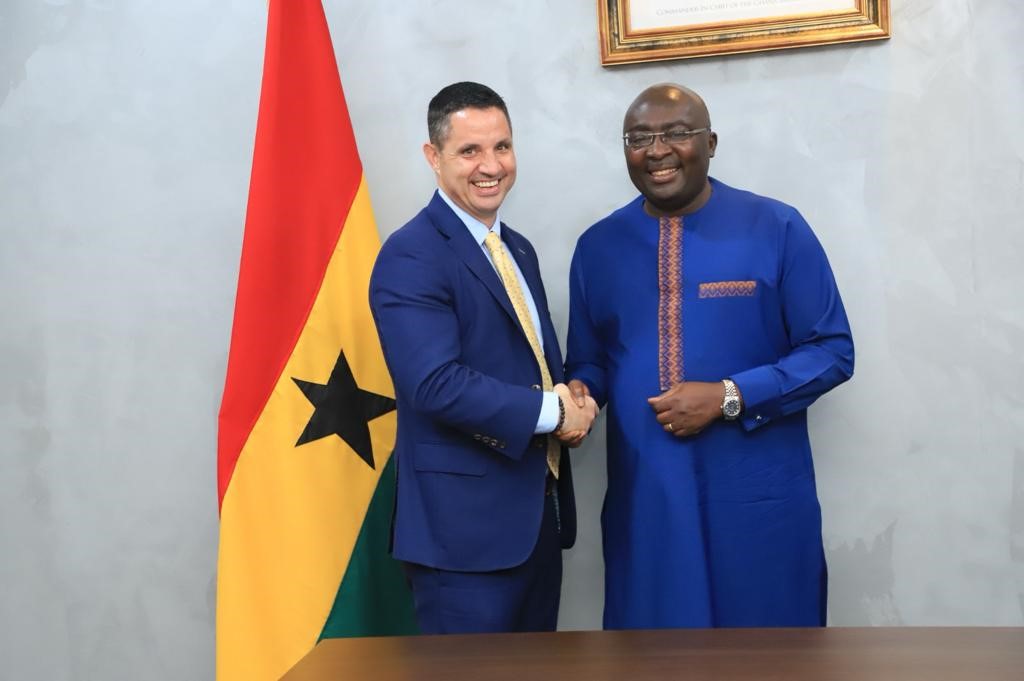
Africa as a continent continues to be poor and suffers from all the social, economic, and political pathologies that so often accompany poverty. The marks of poverty and its consequences are everywhere, especially in rural Africa, where farms fail to produce enough to feed the farmer and his family, and in the urban slums, where hawkers risk their limbs to sell to speeding motorists. There is urban poverty and rural poverty in Africa, and you cannot be in an African city or a village and escape the marks of that poverty: hunger, illness, illiteracy, and idleness.
Today, we know that there is information and knowledge available that can make a difference in the lives of rural and urban poor, make a difference to those who have very little to eat, or illiterate, or unskilled. And putting that information to work often requires new inputs: seeds, or medicines, or computers.
The future of the continent depends upon our willingness to harness the new information and communication technologies. A nation unable to join this new economic order, unable to harness the power of ICT is effectively locked out of the new global economy, and forced to remain a marginal player on the world economic stage.
Today, a sizable percentage of Africans are using information and communication technologies (e.g., the Internet, mobile phones, etc.) to access services such as information on health, agriculture, online banking, etc.
Knowledge has now become the key to wealth creation and the alleviation of poverty.Fact is, all successful economies in the world today are knowledge-based and technology-driven. These economies are part of the global village which is run by knowledge and carried through by ICT. Like India, China, and even Mauritius, the future is an ICT based sustainability model. Africa needs to embark on an aggressive journey to build a solid national foundation by strengthening the use of ICT in our quest to emerge as a force to reckon with.
Sixty percent of the wealth in the developed nations is created from technological knowledge. Since the wealth of the future will be created from technological knowledge, Africa must invest in technological development or risk being left behind.
We need to leapfrog into the information age where knowledge is the most valuable commodity. Making a giant leap to this world will require computer skills.
There are many challenges that lie ahead. One challenge confronting the continent is the creation of an affordable and equitable access to information for people in both rural and urban areas. With Africa's vast rural background, it is indeed a challenge to put in place the necessary infrastructure to bring the entire continent into the orbit of the information age.
Greater effort is needed in a number of sectors to assure the mainstreaming of ICTs as tools of development, including ICT infrastructure, awareness of the development potential of ICTs, human and institutional capacity building, legal and regulatory frameworks, content, financing,
Over the past couple of years, Africa has seen a rapid transformation of its technological landscape. The improvement in telecommunications networks, the increasing use of mobile technologies, the availability of used computers, and the deployment of new technologies has made it possible for a cross section of the population to have access to basic telephony and Internet service.
However, a lot more remains to be done. There is the need to ensure that the benefits of ICT is widely distributed across the country. As we are well aware, the majority of Africans remain in the villages, many still mired in poverty and illness. With new ICTs, rural communities can acquire the capacity to improve their living conditions and become motivated through training and dialogue with others to a level where they can make decisions for their own development. Giving rural people a voice means giving them a seat at the table to express their views and opinions and become part of the knowledge economy.
It is important to recognize and address the connectivity gap because information technology, and the ability to use it and adapt it, is a critical factor in generating and accessing wealth, resources, and knowledge at all times. Thus, access to information, communications and relevant technologies is becoming crucial to the life chances of people and institutions.
If Africa is to succeed in becoming a part of the new global economy, it must address the challenges brought about by the digital divide and provide all of its people with the right tools they need to be part of the information society.
Efforts to promote more universal access to the Internet in Africa has been discussed by high-level policymakers at several high profile meetings.
Mobile Internet is increasingly becoming popular because Africa is the world's largest-growing mobile phone market. The growth of mobile phone subscribers has been faster than Internet subscribers.For example, mobile phones are being used to provide various services such as mobile internet, mobile commerce, mobile learning, and mobile banking. Mobile banking services, for example, enables users securely access balance information, pay bills, transfer funds, and find nearby ATMs and banking centers. Services such as wireless application protocol (WAP) allow people to access basic information on the internet, through their mobile phone handset. According to British Broadcasting Corporation, page views for WAP usage are growing at 100% yearly. The BBC website notes that the vast majority of people accessing their website from their mobile phones are from Africa, 61% from Nigeria and 19% from South Africa.
Also, radio remains the most popular, viable, accessible, and cost-effective means of communication for rural and non-rural people in Africa and elsewhere. A community radio can overcome the barriers of distance, illiteracy and language diversity. Through the acquisition of licenses to operate radio frequencies, the communities served will be poised to promote their own development projects and disseminate development messages to large numbers of the population. Moreover, a community radio station can serve rural development activities by addressing the basic needs of life and providing the means of sharing relevant information about what other people are doing to address similar problems in other parts of the world.
Today we truly live in a global village, but it is a village with privileged "information haves" and many "information have-nots". With the new technologies available to us, we have an opportunity to change this.
Nana Prof. OseiDarkwa, President
African Virtual Campus
Read Full Story





















Facebook
Twitter
Pinterest
Instagram
Google+
YouTube
LinkedIn
RSS